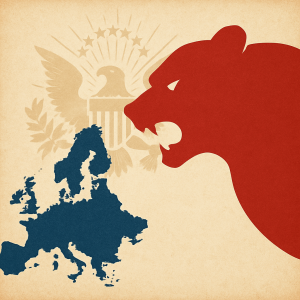They would have every reason to support Ukraine. Latin American countries should remember that they too have a powerful neighbour that has long regarded them as their “backyard” and has not entirely lost its desire to impose a suzerainty on them. African countries, for their part, should not ignore the fact that Mr Putin’s attempt to annex Ukraine is as anachronistic and crazy as if France were to set out to reconquer Algeria or Britain to reclaim Nigeria.
Ukraine is a state that a defeated empire would like to put back under trusteeship, but these countries, which are now classified in the catch-all category of the “Global South”, are far from being unanimous in condemning the aggression of which it is the victim. They do not approve of it either, but few of them have joined the economic sanctions against Moscow.
India is making tremendous gains from its purchases of Russian oil. China is sticking to what one might call a pro-Russian neutrality. The Brazilian president went so far as to refuse any contact with Volodymyr Zelensky last week on the sidelines of the G7, and these countries are calling not for resistance against Russian aggression but for a ceasefire that would only rubber stamp the Kremlin’s annexations.
In the case of the Chinese regime, we understand. Although this war may ultimately weaken Mr Xi by disrupting international trade, there is a deep ideological solidarity between the Chinese and Russian leadership. They make common cause against democracy, but the other leaders of the “South”, which also encompasses most of Asia, why are they not on the side of Ukraine? Why is their caution putting them much closer to Vladimir Putin than to the West?
The answer is that these countries share a common trait of not wanting to contribute to Vladimir Putin’s defeat for fear that it would be so great that the United States would regain the hyperpower status it had acquired at the very end of the last century. This is particularly true of China, which is now engaged in an arm wrestling match with Washington, but it is also true of the entire global South, of all those countries that aspire to be able to carry more weight on the international scene, as Saudi Arabia, South Africa, Brazil and Qatar are beginning to do.
All these countries, even the richest among them, think that they would have a lot to lose from a complete defeat of Russia because it would leave them without the means to face the American power. Even the former trade unionist Lula has come to want to save Vladimir Putin’s neck so that his country and all those of the global South can find a place and exist between the great rivals of a world that has remained multipolar.
If one does not see this reality or prefers to forget it, one is only serving the interests of Mr Putin and Mr Xi, but how to distance then the global South from Moscow and Beijing? It is still possible, despite the immense political divisions and divergent interests of these countries. It will not be easy, but three things must be done.
The first is to hammer home the point that whatever the historical wrongs of the West, whether colonialism or the Iraq war, they are now on the right side of history by opposing Mr Putin, who dreams of resurrecting colonialism by restoring his empire. The second is that the Western front against this aggression combines democracies against a dictatorship that does not export freedoms to Africa but economic predation and supports the most appalling regimes in Latin America.
And the third thing to say to these countries is that the defeat of Russian aggression will not be the triumph of an American hyperpower. Above all, it will be the political affirmation of an autonomous and democratic Europe, without which there will be no multipolarity, but a march towards a global conflagration.



